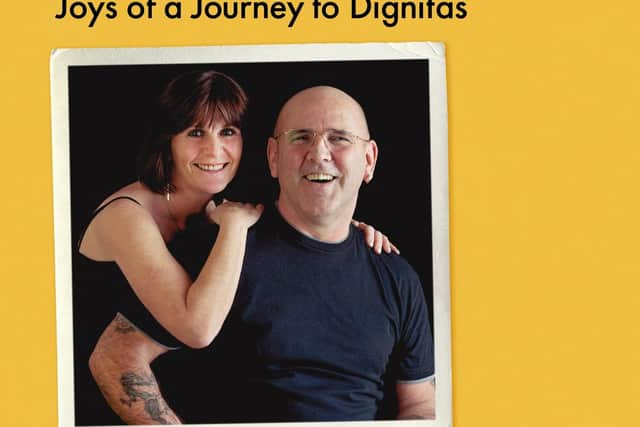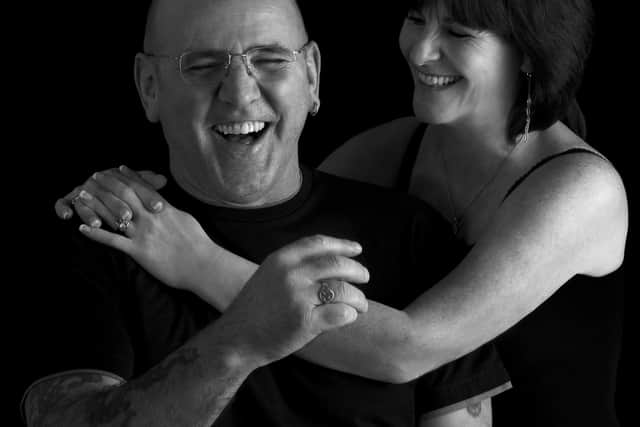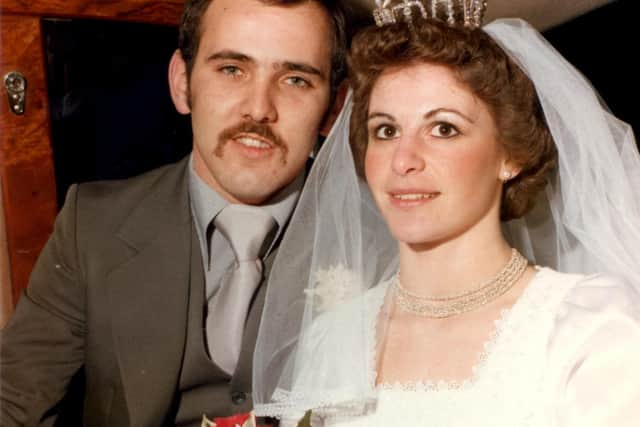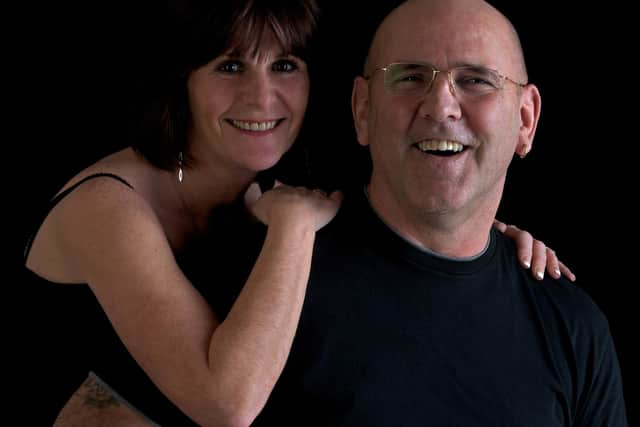Assisted suicide: New book examines how a Scarborough man ended his own life at Dignitas
Julie Casson, who lives in South Cliff, Scarborough, was constantly at the side of her husband Nigel who began suffering symptoms of MND aged 52 before he died 10 years later after travelling to Zurich to end his life. Her book entitled ‘Die Smiling’ tells the story of how Nigel, a pillar of the community in Scarborough, gradually became trapped in his own body during a decade long struggle. However, the seeds of how his life would eventually end were sown very early in the ordeal.
Julie said: “The first signs were November 2006. His speech became slurred and sometimes he couldn’t control his tongue – it was twisting around in his mouth and felt as heavy as a brick. We went to see a speech therapist who recommended we went to a neurologist. From there it was just a whole barrage of tests over a period of months and he was diagnosed in February 2007.
Advertisement
Hide AdAdvertisement
Hide Ad“They can’t tell you how it will progress or what to expect because everyone is really different. It’s a very individual journey. When he was diagnosed the neurologist gave him three to five years which is usually the best you can hope for with MND. More than 50 per cent of people die within 18 months of diagnosis. It can be extremely rapid and ruthless.


“Like everyone else when you get something you head first to the internet and read everything there is to read about it, which is what we both did. We spent a lot of time searching for a cure, for a sign of hope. There are lots of stories on the internet about people who have gone to Dignitas. We watched a documentary on the BBC about a man from Harrogate who went with his wife. I remember saying ‘oh, poor man’ and Nigel said ‘that’s not a bad way to go’. That was very early on – pretty much within a week of diagnosis.
“Then he made a joke of it when we were chatting with the kids, again just after diagnosis, but we just ignored him because he was always joking. And then he never mentioned again until 10 years later when his body was ravaged. He could make himself understood and he had limited movement in his hands and arms but other than that he could do nothing for himself.”
Advertisement
Hide AdAdvertisement
Hide AdNigel was born in Bradford and Julie in Halifax but both families moved to Cleckheaton where Nigel and Julie attended Whitcliffe Mount Grammar School. The couple met through Nigel’s sister, who was Julie’s best friend, and they married in 1978 before moving to Scarborough in 1984 where Nigel set up his scaffolding business – DNC Scaffolding Ltd.


Julie said: “He was a very positive, joyful person. He was always joking, he was always witty. He was sociable and had a large circle of friends. He was a member of the golf club here in Scarborough and the rugby club and was supportive of them both. He was a successful businessman with a scaffolding company and a roofing company, which he ran with his partner.
“He was also very pragmatic as well as positive. He took life on the chin and these are qualities that came in really handy when he had to deal with MND, which he dealt with with great humour. He never felt sorry for himself or moaned. He made the best of it over the 10 years.”
Nigel told Julie and their three children – Craig, Eleanor and Rebecca – of his decision after his condition deteriorated.
Advertisement
Hide AdAdvertisement
Hide AdJulie said: “I think it was September 2016 when he’d had a harrowing episode and when he did emerge he’d made his decision. He’d always been determined that he didn’t want MND to ravage his spirit the way it had ravaged his body. He was determined to die happy and while he could still smile, which is why it is the title of the book.


“He said to me that day – he was calm – I have found the cure, I am going to Dignitas. Obviously we discussed it in full but he said there was no way let this disease decide my fate. Because his MND was slow, his death would be slow. Knowing he had ‘a cure’ and knowing he had a choice he became triumphant. Going to Dignitas for Nigel wasn’t an act of despair, it was an act of triumph. The quality of the rest of his life then was much improved. He felt liberated because he was in control.”
The debate around assisted-suicide continues to gather pace but Julie said she never intended to become part of it by writing the book. However, she does believe the law should be changed.
“The book is Nigel’s story and the family’s story. There is a lot of humour that runs through it because that is the kind of man he was. I was never trying to bang a political drum but by accident it has fallen into the heart of the debate that is taking place now,” she said.
Advertisement
Hide AdAdvertisement
Hide Ad“I am a member for the campaign for dignity in dying which is proposing a change in the law for assisted dying very much like Dignitas’s own model which is very thorough with plenty of safeguards.


“So many people are denied any choice, they are forced to suffer agonising and gruesome deaths. And if you do go to Dignitas you are forced to behave like criminals, and are obliged to make that journey while you still can.
“People who do choose to go may very well have lived a bit longer because you have got to be able to get there and you must be able to administer the lethal drug yourself. The reason why I would like to see the law change is that the hardest thing for us as a family was to leave him there. It’s the walking away – it was heart-breaking. If he could have died at home it would have been a much less stressful process for everyone and that concerned Nigel.”
To buy Julie Casson’s book visit uk.bookshop.org and search ‘Die Smiling: A Memoir. The Sorrows and Joys of a Journey to Dignitas”
